Short & Sweet Treats discussion
Take a Coffee Break...
>
Word of the Day
 pisher
pisherPRONUNCIATION:
(PISH-uhr)
MEANING:
noun:
1. A bedwetter.
2. A young, inexperienced person.
3. An insignificant person: a nobody.
ETYMOLOGY:
From Yiddish pisher (pisser), from German pissen (to urinate). Earliest documented use: 1941.
USAGE:
"Natey said, 'I wanted to impress you, to show you that the pisher from Cabin Three at Camp Ojibwa was now a serious player.'"
Joseph Epstein; Onto a Good Thing; Commentary (New York); May 2013.

 ganef
ganefPRONUNCIATION:
(GAH-nuhf)
MEANING:
noun: A thief, swindler, or rascal.
ETYMOLOGY:
From Yiddish, from Hebrew gannabh (thief). Earliest documented use: 1920.
USAGE:
"Seniors, particularly women, are the largest and most frequent target of financial scamsters, and this ganef takes the cupcake."
Malcolm Berko; Life Insurance, Farmland, and Facebook; Creators Syndicate (Los Angeles); Nov 6, 2013.
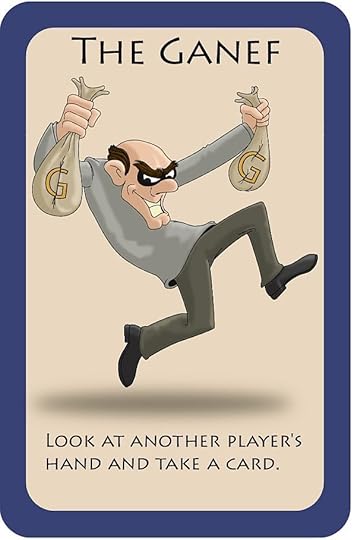
 macher
macherPRONUNCIATION:
(MAHKH-uhr)
MEANING:
noun:
1. A person of influence, one who gets things done.
2. A self-important overbearing person.
ETYMOLOGY:
From Yiddish makher, from German macher (maker or doer). Earliest documented use: 1911.
USAGE:
"They weren't all his ideas, but he -- he, Andrew Cuomo -- was the macher who'd do it."
Scott Raab; The Perfect Prince of Cool; Esquire (New York); Nov 2000.
 kibitzer
kibitzerPRONUNCIATION:
(KIB-it-suhr)
MEANING:
noun: An onlooker who offers unwanted advice or criticism, for example at a card game.
ETYMOLOGY:
From Yiddish kibitsen, from German kiebitzen (to look on at cards), from Kiebitz (busybody, literally pewit or lapwing, a shorebird with a bad reputation as a meddler). Earliest documented use: 1927.
USAGE:
"Don't listen to the Internet kibitzers. Arthur Chu is playing the game right."
Ken Jennings; Arthur Chu Is Playing Jeopardy! the Right Way; Slate (New York); Feb 10, 2014.

 DOLOR
DOLORa state of great sorrow or distress
Origin of DOLOR
Middle English "dolour", from Anglo-French, from Latin "dolor" pain, grief, from "dolēre" to feel pain, grieve
First Known Use: 14th century
"Dolor" by Theodore Roethke
I have known the inexorable sadness of pencils,
Neat in their boxes, dolor of pad and paper weight,
All the misery of manilla folders and mucilage,
Desolation in immaculate public places,
Lonely reception room, lavatory, switchboard,
The unalterable pathos of basin and pitcher,
Ritual of multigraph, paper-clip, comma,
Endless duplicaton of lives and objects.
And I have seen dust from the walls of institutions,
Finer than flour, alive, more dangerous than silica,
Sift, almost invisible, through long afternoons of tedium,
Dropping a fine film on nails and delicate eyebrows,
Glazing the pale hair, the duplicate grey standard faces.

 lubricious
lubriciousPRONUNCIATION:
(loo-BRISH-uhs)
MEANING:
adjective:
1. Lecherous.
2. Salacious.
3. Shifty or tricky.
4. Smooth and slippery.
ETYMOLOGY:
From Latin lubricus (slippery, smooth). Ultimately from the Indo-European root sleubh- (to slide or slip), which also gave us slip, slop, sloop, sleeve, and lubricate. Earliest documented use: 1584.
USAGE:
"The lubricious, often drooling Claudius himself, I reflect, would have been into full-body massage."
Clive Irving; Ye Olde Dolce Vita; Condé Nast's Traveler (New York); Apr 2011.
"Ella Fitzgerald's rendition of 'Santa Claus Got Stuck in My Chimney' was so lubricious and dripping in double entendres that her record label feared to release it."
Gerry Bowler; Santa Claus: A Biography; McClelland & Stewart; 2005.
 diffident
diffidentPRONUNCIATION:
(DIF-i-duhnt)
MEANING:
adjective: Lacking in self-confidence.
ETYMOLOGY:
From Latin diffidere (to mistrust), from dis- (not) + fidere (to trust). Ultimately from the Indo-European root bheidh- (to trust), which also gave us abide, abode, fiancé, affidavit, confide, confident, defiance, fidelity, defy, and infidel. Earliest documented use: 1598.
USAGE:
"In contrast with Albert's bonhomie, Philippe seems shy and diffident."
Sire, There are No Belgians; The Economist (London, UK); Jul 27, 2013.
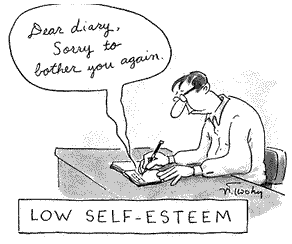
 Spurious
SpuriousSpurious adj. Not genuine, authentic, or true; not from the claimed, pretended, or proper source; counterfeit. Not being what it purports to be; false or fake. “Spurious claims.”
 SPECIOUS
SPECIOUS (SPE-shus)
superficially plausible, but actually wrong
"He justified his actions with specious reasoning."
misleading in appearance, especially misleadingly attractive.
"The music trade gives Golden Oldies a specious appearance of novelty."
synonyms: misleading, deceptive, false, fallacious

 orgulous
orgulousPRONUNCIATION:
(OR-gyuh-luhs)
MEANING:
adjective: Haughty.
ETYMOLOGY:
From Old French orguill (pride). Earliest documented use: 1275.
USAGE:
"Behring was not too orgulous to ask for practical advice when in the spring of 1894 he had run into difficulties."
Ulrike Klöppel; Enacting Cultural Boundaries; Science in Context (Cambridge, UK); Jun 2008.
 odyssey
odysseyPRONUNCIATION:
(AH-duh-see)
MEANING:
noun: A long eventful journey or experience.
ETYMOLOGY:
After Odysseus, whose 10-year wandering after the fall of Troy is described in Homer's epic poem, the Odyssey. Earliest documented use: 1886.
USAGE:
"In The Beast, ... journalist Oscar Martinez chronicled the treacherous odysseys that Central Americans undertake as they cross Mexico. ... The 'beasts' of the title are the trains on which the travelers ride not in boxcars, as American hobos did in earlier times, but on the roofs."
Harold Meyerson; A New Children's March; The Washington Post; Jun 19, 2014.

Departure of Ulysses from the Land of the Pheacians
Art: Claude Lorrain (c. 1600-1682)
A great story if you haven't read!


Jettaturaphobia
(JET•uh•TOO•ra•FOW•be•ya)
Noun:
-Fear of the Evil Eye!
***NOT to be confused with Jettaphobia, the fear of the Volkswagon Jetta.***
From: jettatura = a curse of the evil eye, whereby all that the cursed looks upon will suffer bad luck
Used in a sentence:
"Jettaturaphobia is more prominent in the Mediterranean region than in other areas.
 SAMHAIN
SAMHAINSAH-win or SOW-in
Samhain is a Gaelic festival marking the end of the harvest season and the beginning of winter or the "darker half" of the year. It is celebrated from sunset on 31 October to sunset on 1 November, which is nearly halfway between the autumn equinox and the winter solstice. Along with Imbolc, Beltane, and Lughnasadh it makes up the four Gaelic seasonal festivals. It was observed in Ireland, Scotland, and the Isle of Man.
Samhain (like Beltane) was seen as a liminal time, when the spirits or fairies (the Aos Sí) could more easily come into our world. Most scholars see the Aos Sí as remnants of the pagan gods and nature spirits. It was believed that the Aos Sí needed to be propitiated to ensure that the people and their livestock survived the winter. Offerings of food and drink were left for them. The souls of the dead were also thought to revisit their homes. Feasts were had, at which the souls of dead kin were beckoned to attend and a place set at the table for them. Mumming and guising were part of the festival, and involved people going door-to-door in costume (or in disguise), often reciting verses in exchange for food. The costumes may have been a way of imitating, or disguising oneself from, the Aos Sí.
In the 9th century, the Roman Catholic Church shifted the date of All Saints' Day to 1 November, while 2 November later became All Souls' Day. Over time, Samhain and All Saints'/All Souls' merged and helped to create the modern Halloween.
Modern Halloween has become less about literal ghosts and ghouls and more about costumes and candy. The Celts used the day to mark the end of the harvest season and the beginning of winter, and also believed that this transition between the seasons was a bridge to the world of the dead. Over the millennia the holiday transitioned from a somber pagan ritual to a day of merriment, costumes, parades and sweet treats for children and adults.

 It actually was the basis for the Salem witchcraft trials, sadly. http://www.history.com/topics/salem-w...
It actually was the basis for the Salem witchcraft trials, sadly. http://www.history.com/topics/salem-w..."The infamous Salem witch trials began during the spring of 1692, after a group of young girls in Salem Village, Massachusetts, claimed to be possessed by the devil and accused several local women of witchcraft. As a wave of hysteria spread throughout colonial Massachusetts, a special court convened in Salem to hear the cases; the first convicted witch, Bridget Bishop, was hanged that June. Eighteen others followed Bishop to Salem’s Gallows Hill, while some 150 more men, women and children were accused over the next several months. By September 1692, the hysteria had begun to abate and public opinion turned against the trials. Though the Massachusetts General Court later annulled guilty verdicts against accused witches and granted indemnities to their families, bitterness lingered in the community, and the painful legacy of the Salem witch trials would endure for centuries."
 I can't find any indication that they were punished--they sort of faded into the background. When Arthur Miller wrote The Crucible, he took a great deal of license, setting up a love story between Abigail and John Proctor. However, Abigail was only 11 when she and Betty Parris started their "seizures".
I can't find any indication that they were punished--they sort of faded into the background. When Arthur Miller wrote The Crucible, he took a great deal of license, setting up a love story between Abigail and John Proctor. However, Abigail was only 11 when she and Betty Parris started their "seizures". http://en.wikipedia.org/wiki/Salem_wi...
No wonder the McCarthy era was considered another example of a "witch hunt". Unbelievable what human beings can do to others while claiming "the devil made me do it".
 Certainly was! http://www.newyorker.com/magazine/199...
Certainly was! http://www.newyorker.com/magazine/199...WHY I WROTE “THE CRUCIBLE”
By Arthur Miller
Oct. 21, 1996 New Yorker
"“The Crucible” was an act of desperation; Miller was fearful of being identified as a covert Communist if he should protest too strongly. He could not find a point of moral reference in contemporary society. Miller found his subject while reading Charles W. Upham's 1867 two-volume study of the 1692 Salem witch trials, which shed light on the personal relationships behind the trials. Miller went to Salem in 1952 and read transcripts. He began to reconstruct the relationship between John and Elizabeth Proctor and Abigail Williams, who would become the central characters in “The Crucible.” He related to John Proctor, who, in spite of an imperfect character, was able to fight the madness around him. The Salem court had moved to admit “spectral evidence” as proof of guilt; as in 1952, the question was not the acts of an accused but his thoughts and intentions. Miller understood the universal experience of being unable to believe that the state has lost its mind."
 Julia wrote: "ADIABOLIST
Julia wrote: "ADIABOLIST (a dye AB o list)
One who does not believe in the devil.
I'm with Hobbes :-)"
Same here! :)
 TLACHTGA
TLACHTGA(Tla-hit-ga)
An example of an ancient site that was associated with the observance of the feast of Samhain was the Hill of Ward or "Tlachtga," located near Athboy in the modern county of Meath. It is 116 meters (380 feet) high with a prehistoric ringfort on the top. There are legends that druids gathered there to light huge fires as a signal that festivities should commence. There is evidence that great fires were lit on this hill in pre-Christian times, perhaps in order to mark the beginning of winter.
The festival probably lasted for least several days and centered on the god Lugh. The site takes it name from Tlachtga the daughter of the Druid Mug Ruith who died there giving birth to triplets.
Today archaeologists are digging at Tlachtga:

Books mentioned in this topic
The Clicking of Cuthbert (other topics)The Crucible (other topics)
A History of Modern Drama, Volume I (other topics)
Toy Stories: Photos of Children from Around the World and Their Favorite Things (other topics)
The Book of Life (other topics)
More...
Authors mentioned in this topic
Leo Tolstoy (other topics)P.G. Wodehouse (other topics)
Leonardo da Vinci (other topics)
Theodore Roethke (other topics)
David Krasner (other topics)
More...





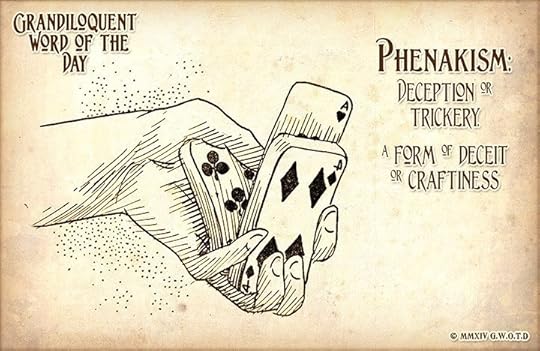


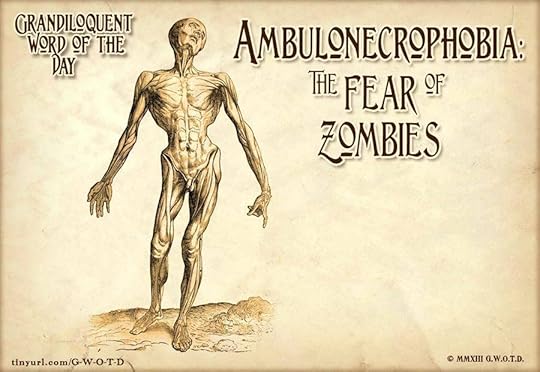
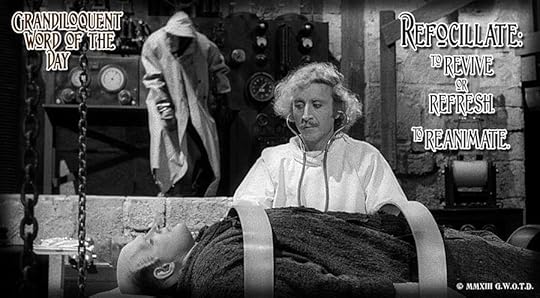


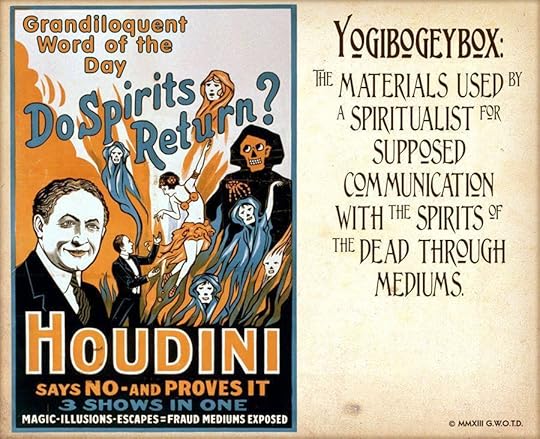
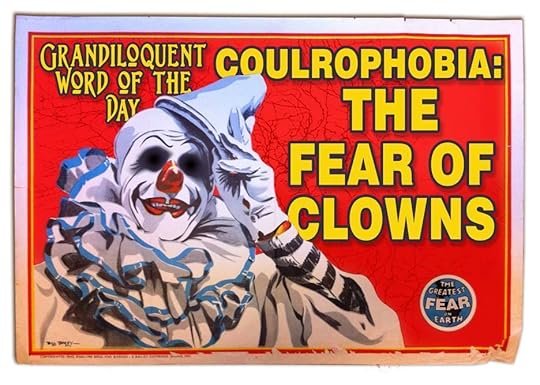

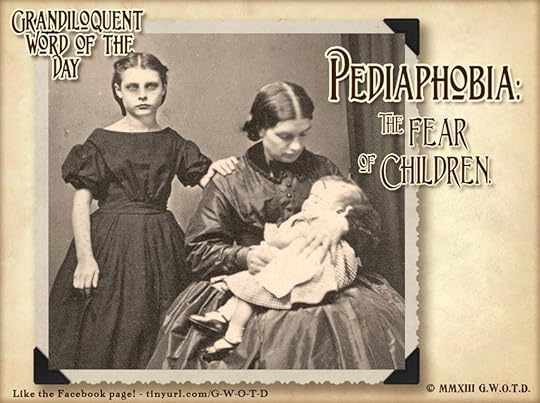
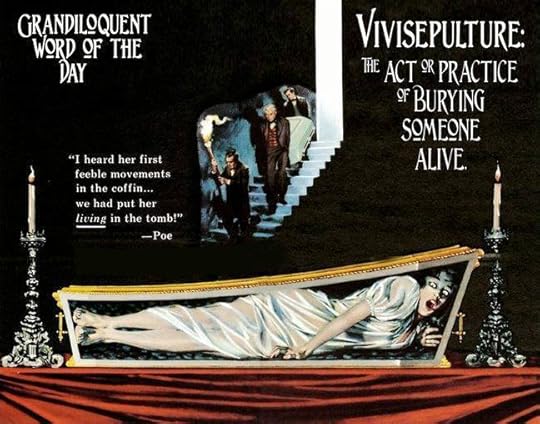






PRONUNCIATION:
(LOOFT-mensh)
MEANING:
noun: An impractical dreamer.
ETYMOLOGY:
From Yiddish, from luft (air) + mensch (man, person), from German. Earliest documented use: 1907.
NOTES:
A luftmensch is, literally, an airman, someone with his head in the clouds. A luftmensch is unconcerned with such practical matters as earning a living. Read about a luftmensch ("Dentist and Restaurateur") in this short story by Israel Zangwill.
USAGE:
"Shavit thinks himself a hardened realist, but maybe he's another kind of luftmensch."
Geoffrey Wheatcroft; A Romantic Dream; The Spectator (London, UK); Feb 22, 2014.